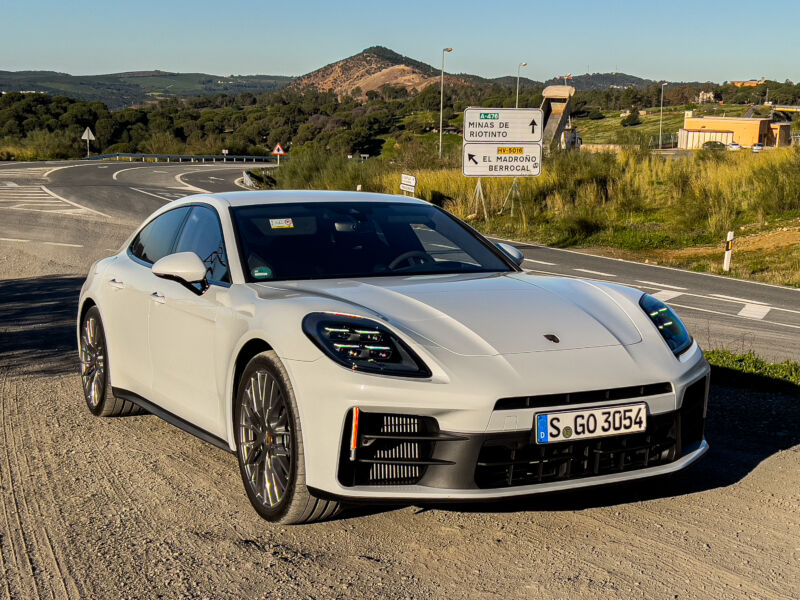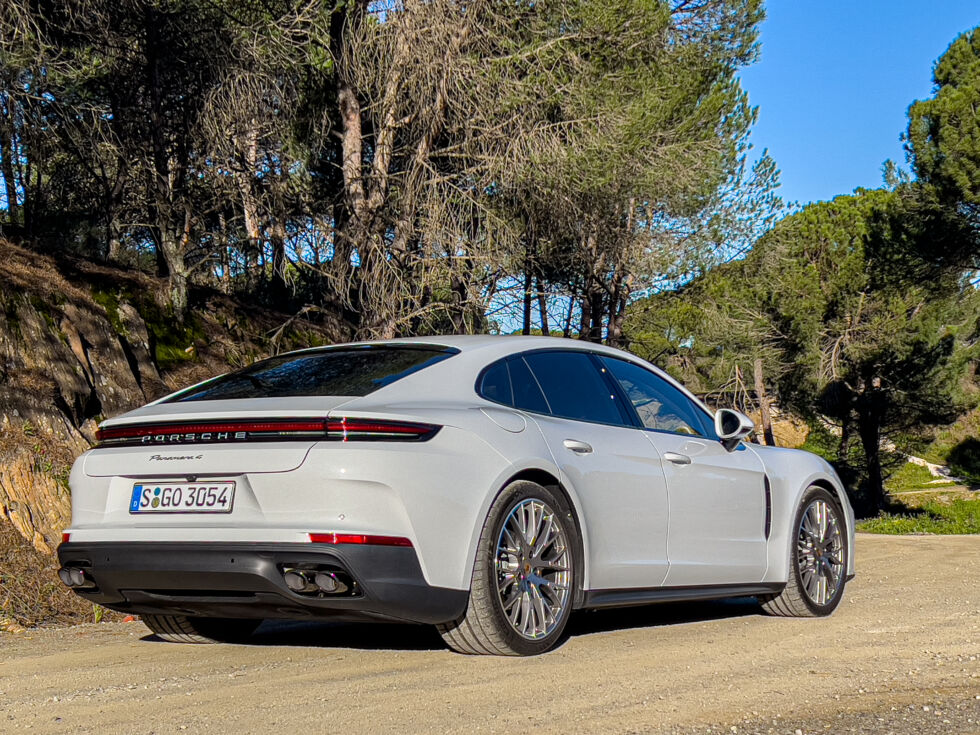
Jonathan Gitlin
SEVILLE, Spain—As soon as upon a time, Porsche simply made two-door sports activities automobiles. Then the twenty first century occurred. Folks began to get fickle and demand issues like practicality and luxury in addition to good dealing with and soild engineering. Preferring to remain in enterprise, Porsche acknowledged this market shift and since 2003 has bolstered its lineup, first with SUVs, then in 2009 with the Panamera sedan.
That sedan is now in its third era, and late final 12 months, we visited its manufacturing unit in Leipzig to get a sneak preview of the prototype. Now, the brand new Panamera has gone into manufacturing, and we spent a day driving a pair of fashions on the street and observe forward of the automotive’s arrival within the US this summer time.
Appears-wise, the third-gen Panamera intently resembles the outgoing mannequin to the extent that it has the very same exterior measurements: 198.8 inches (5,052 mm) lengthy, 76.3 inches (1,937 mm) huge, and 56 inches (1,423 mm) tall. Nevertheless, it should solely be supplied as a five-door hatchback—the Sport Turismo variant is not any extra, we’re instructed.

Jonathan Gitlin
The design appears to be like a bit sharper than the older automotive’s, with extra pronounced fenders over the wheel and steeply raked LED matrix headlights. On the again, the retractable rear wing is a split-piece affair that pops out after which extends above a sure velocity threshold. Eager eyes may even see further air ducts on the entrance to raised cool the engine bay.
Powertrains
The Panamera was the primary Porsche to sport a hybrid powertrain, ignoring, in fact, the Lohner-Porsche Semper Vivus of 1899. In 2016, Porsche put a plug-in hybrid powertain into the Panamera for the primary time, and it should ultimately supply a complete of 4 completely different PHEV powertrains for the 4th-gen automotive. It is solely providing one at launch, although, and it is the Panamera Turbo E-Hybrid. You may know you are taking a look at a Panamera Turbo due to the distinctive “Turbonite” coloured badge and accents, and pedants might be happy to know that this automotive does certainly characteristic pressured induction.
The truth is, the 4.0 L V8 makes use of a pair of turbochargers, now monoscroll, reasonably than the twin-scroll generators within the previous automotive. This enables the automotive to warmth the catalytic converter extra rapidly and function at greater exhaust gasoline temperatures. There isn’t any extra cylinder deactivation; as a substitute, Porsche’s engineers have used variable valve raise and opening to deal with completely different engine hundreds.
There’s an all-new 188-hp (140 kW), 332 lb-ft (450 Nm) electrical motor for the PHEV powertrain, which now lives contained in the eight-speed twin clutch PDK transmission (which powers all 4 wheels) reasonably than downstream of it. Whole energy and torque output is 670 hp (500 kW) and 685 lb-ft (935 Nm).
-
A cutaway illustration of the Panamera Turbo E-Hybrid’s powertrain.
Porsche -
A cutaway illustration of the Panamera plug-in hybrid battery pack.
Porsche -
A cutaway exhibiting the internals of the Panamera Turbo Hybrid’s PDK transmission. Word the electrical motor on the far left.
Jonathan Gitlin
The electrical motor is at all times coupled to the transmission, and it is solely when the automotive desires so as to add some inner combustion energy {that a} decoupler closes and engages the V8 as properly. Beneath braking, the electrical motor can regenerate as much as 88 kW earlier than the friction brakes take over. High velocity is 87 mph (140 km/h) below electrical energy alone, or 190 mph (305 km/h) with the V8 additionally contributing.
There’s additionally a brand new high-voltage traction battery to go together with the brand new electrical motor. Porsche has upped the capability to 25.9 kWh, which ought to translate to a significant enhance within the distance one can drive on electrical energy alone. Porsche has but to launch official EPA gas effectivity knowledge, so we will not be particular, however the European WLTP electric-only vary is between 76 and 91 km, relying on drive mode, which is a few 75 % enchancment on the earlier Panamera PHEV. Recharge instances (from 0 to 100%) are as little as 2 hours and 39 minutes by way of the onboard 11 kW AC charger.
The opposite two powertrains at launch would be the rear-wheel drive Panamera and the all-wheel drive Panamera 4. Each use a 2.9 L twin-turbo V6 gasoline engine, which generates 349 hp (260 kW) and 368 lb-ft (500 Nm), a ten % enhance in each stats over the outgoing V6 Panamera. Coupled with a brand new eight-speed PDK transmission, that saves a tenth of a second or two on the 0–60 time—between 4.8 and 5 seconds relying on whether or not you optioned the Sport Chrono package deal—and raises the highest velocity to 168 mph (270 km/h) for the Panamera and 169 mph (272 km/h) for the Panamera 4.
